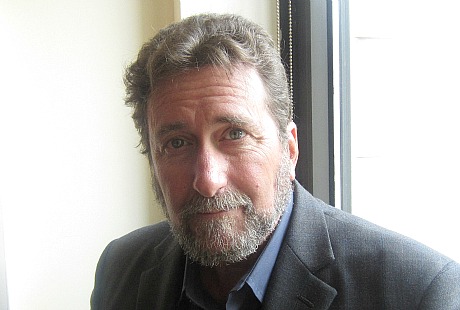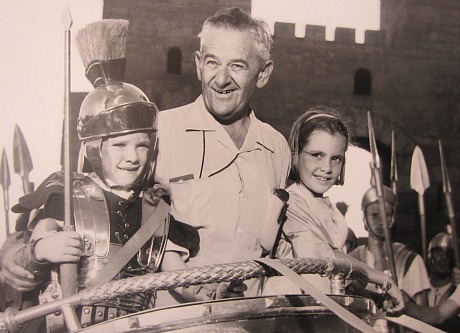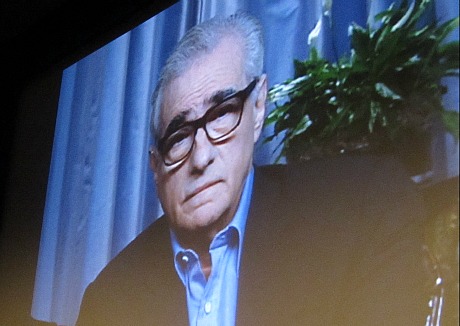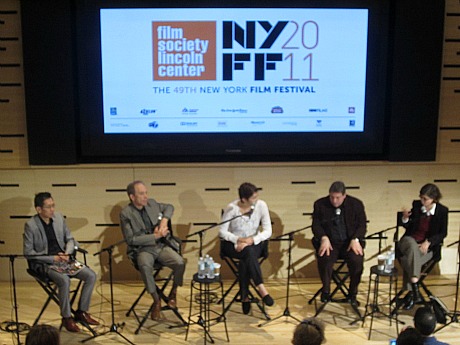I had intriguing discussions earlier today about the Ben-Hur restoration and Bluray with Warner Bros. mastering vp Ned Price and director Fraser Heston, and I recorded them even. But I have to get over to the New York Film Festival opening-night screening of Carnage and then the after-party at the Harvard Club, so the substantive Ben-Hur filing will have to wait.

Ned Price, vp mastering for Warner Bros. Technical Operations, earlier today at Manhattan’s Essex House — Friday, 9.30, 2:20 pm.

Director Fraser Heston, son of late
Ben-Hur star Charlton Heston.
From master film restorationist/preservationist guru Robert Harris on Home Theatre Forum:
“Ben-Hur is a true restoration.
“The tracks sound more representative of the film than did those of the last DVD release, which seemed heavy on the effects, the color is back, and very representative of the look of the original. The Glory Days of Ben-Hur have returned.
“Everything looks to have been dutifully handled, and the recipient of all of this work is the home theater enthusiast.
“Ben-Hur is a glorious Blu-ray experience. The labors performed to get it back into shape look superb on the format. Some will discuss the aspect ratio. Filmed at 2.76:1, I’m happy with it anywhere between 2.5 and 2.76. I don’t believe that it matters. In over 200 minutes of film, I noted no major problems. A couple of mis-cuts, which will never be noticed. Even dupes are handled to perfection.
“The icing on this particular release is inclusion of the tinted and two-color 1925 silent version, from Photoplay, and with a score by Carl Davis. A silent masterpiece in its own right.
“I must make the point. The way to see properly this film is on a huge screen, but in the world of home theater and Bluray, Warner Home Video’s new Ben-Hur is Very Highly Recommended, and looks to be the major restoration to hit Bluray in 2011. The quality of the film shines through.”








